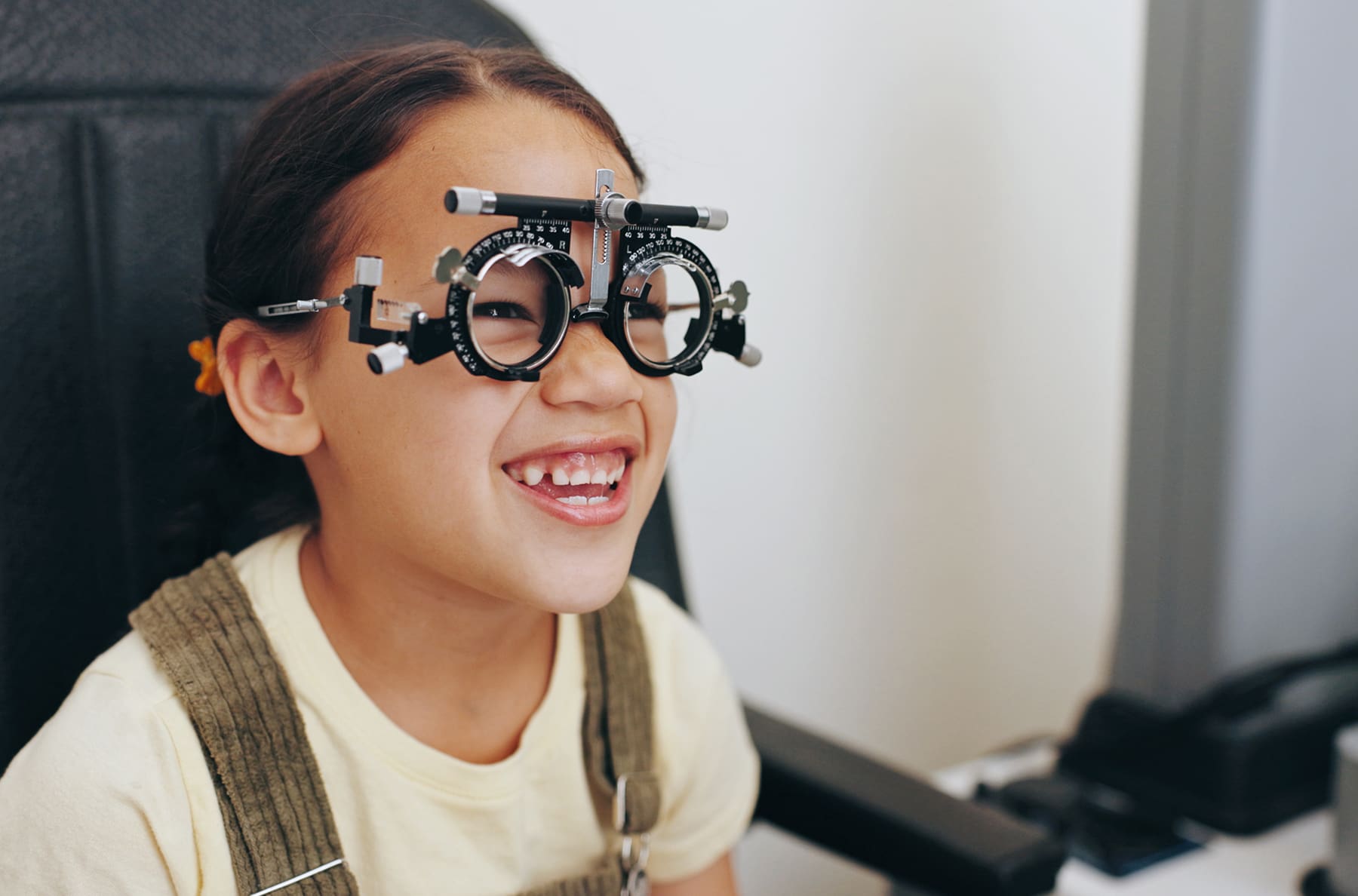Reviewed By Dr. Jodi Kuhn
Reading time: 4 minutes
Vision can change quietly, especially in children. A missed vision issue might mean struggling in school, falling behind on milestones, or even unsafe driving as a teen. That is why regular eye exams are just as important as dental checkups or annual physicals.
In this guide, you will learn when to schedule eye exams for each stage of life—so you can help your whole family see clearly, stay healthy, and thrive.
We provide eye care for children and adults at our locations in Denver, Aurora, Hampden and Thornton. We accept Medicaid!
Table of Contents
Key Takeaway
Eye exams are essential at every age. Sticking to a recommended schedule and paying attention to symptoms between visits helps protect your family’s vision and health.
Why Eye Exams Matter for the Whole Family
Routine eye exams do more than check if someone needs glasses. They can catch silent problems like:
- Nearsightedness, farsightedness, and astigmatism
- Lazy eye (amblyopia) or crossed eyes (strabismus) in kids
- Eye diseases such as glaucoma or cataracts in adults
- Diabetes, high blood pressure, or other health issues affecting the eyes
And since vision often changes without warning, eye exams help you catch issues early, before they affect learning, safety, or comfort.
Eye Exam Schedule for Every Age Group
| Age Group | Recommended Exam Frequency | Key Focus |
| Infants (6–12 months) | Once between 6–12 months | Check for early developmental conditions like lazy eye |
| Toddlers (3 years) | Once at age 3 | Visual acuity, eye movement, eye teaming |
| School-aged (5–18 yrs) | Every year | Track changes, reduce academic strain |
| Adults under 40 | Every 2 years (or sooner if wearing glasses or contacts) | Vision stability, screen-related strain |
| Adults 40–64 | Every 1–2 years | Age-related changes, early signs of disease |
| Adults 65 and older | Every year | Monitor cataracts, glaucoma, macular degeneration |
How Long Does an Eye Exam Take?
A comprehensive family eye exam usually takes:
- 20–30 minutes for kids, depending on age and cooperation
- 30–45 minutes for adults, especially if dilation or imaging is needed
During the visit, your eye doctor will check:
- Vision sharpness (visual acuity)
- Eye movement and coordination
- Focusing ability
- Eye health using a microscope and dilated exam if needed
- For children: depth perception, eye alignment, and visual development
Symptoms That Call for an Earlier Eye Exam
Some symptoms shouldn’t wait for the next scheduled exam. Call us if you notice any of the following:
- Complains of blurry or double vision
- Squints or tilts their head to see
- Has frequent headaches or eye strain
- Rubs their eyes often or avoids screens or reading
- Has trouble tracking objects or focusing
| We Make Eye Care Easy for the Whole Family Youth Vision provides complete, compassionate eye care for children, teens, and adults. We’re experienced in working with families and know how to make visits smooth, stress-free, and age-appropriate. We accept Medicaid at all four of our locations. |
Schedule an Eye Exam for Your Whole Family
Your family deserves clear, comfortable vision at every stage of life. Whether you have a toddler just starting preschool or you’re noticing changes in your own eyesight, regular exams are the key to lifelong eye health.
Schedule an eye exam at one of our convenient locations:
- Denver Youth Vision, located at 1400 Grove Street, Denver, CO 80204, 303-825-2295
- Aurora Youth Vision, located at 14251 E. 6th Avenue, Aurora, CO 80011, 303-343-3133
- Thornton Youth Vision, located at 9674 Washington Street, Thornton, CO 80229, 303-953-880
- Hampden Youth Vision, located at 7400 East Hampden Ave. Unit C1, Denver, CO 80231, 720-866-9906
FAQs
Do you really need an eye exam every year?
Vision can change quickly, and yearly exams help detect changes early. People with eye conditions, chronic illnesses, or corrective lenses should get checked yearly regardless of age.
When should children first get their eyes tested?
Children should have their first comprehensive eye exam at 6 months old, again at age 3, and before starting kindergarten. After that, they should get annual checkups during the school years.
How do I know if my child is color blind?
Color blindness often shows up when children have trouble learning colors, confuse reds and greens, or struggle with color-coded materials. It can be hard to spot without testing, since many kids adapt without realizing anything is wrong. A pediatric eye exam can include a simple color vision test to check for any issues.


